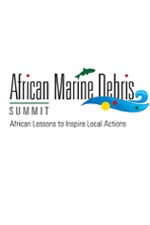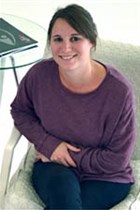
No plastic overboard, please
Nick de Sousa of WSPA provided general information regarding entanglement and how much suffering really goes on under the blue surface of our oceans. It's a heavy statistic to learn that 58% of seals and sea lions are reported entangled in some kind of netting or rope, which can lead to strangulation and even amputation.
The WSPA are "committed to saving animals from unnecessary suffering" and have launched a project suitably called "Untangled". The project aims at providing animal welfare, decreasing the amount of marine debris and educating the public about these dangers.
Some solutions briefly explained would be the ban of gill nets, increase in recycling and better technology regarding fishing equipment and nets.
Expanding the impact of entanglement was Mike Meyer who spoke about the gentle giants of the sea, whales. The unfortunate increase in whale deaths and scars on their skin has generated concern by conservation companies.
According to stats, up to 70% of whales are scarred by foreign material in the ocean, and 10-25% will acquire new scars. A scary stat considering how thick whale skin is, yet these nets and ropes still manage to do so much harm.
Meyer estimates the team is required for untangling whales 12-15 times a year...and those are only the whales they are lucky enough to find.
PETCO was one of the sponsors for this summit, and Cheri Scholtz provided a presentation about recycling of PET materials in South Africa. PET bottles can be recycled into fibre, particularly polyester.
Recycling is an important part of our ecosystem, as materials we use can be refined down as a substitute for saving energy, oil and CO2 gases.
The African Marine Debris Summit was an introduction to the problems the environment faces, not only in South Africa, but in Africa as well with representatives visiting from Cameroon and Nigeria.
The common feeling at this summit was that we are all accountable for our environment, and have the responsibility to protect marine life and human life from the materials we use in our everyday lives.
